
For the past half century, successive Presidential administrations and the Nuclear Regulatory Commission have thwarted the development of advanced reactor designs that might fulfill President Eisenhower’s vision for the “peaceful uses of atomic energy.” That all changed last May, when President Trump issued four executive orders aimed at reinvigorating the U.S. nuclear energy industry. The Trump orders addressed advance reactor technologies – from microreactors to small modular reactors all the way up to advanced tech versions of the water-cooled reactors that power every active U.S. nuclear power plant.

With over 200 million citizens and the continent's largest economy, Nigeria’s stability is vital to regional trade, energy production, and democratic governance. American security assistance — ranging from intelligence-sharing and counter-IED training to logistical support and equipment sales — has gradually expanded in scope. Under both Republican and Democratic administrations, Washington has designated Boko Haram as a Foreign Terrorist Organization and maintained security cooperation programs

For decades, the Pentagon has struggled to field emerging technologies at the speed required to deter near-peer competitors such as China. While progress has been made, especially in rapid prototyping and streamlined contracting authorities, bureaucratic inertia remains a persistent obstacle. The United States must preserve its qualitative edge — not episodically, but continuously. This requires tighter integration across cyber, space, maritime, and energy domains. It requires embedding scientists, engineers, and private-sector innovators into the defense capability development process. It also requires modernizing procurement pathways long been plagued by inefficiency and, at times, waste and abuse.

Just months after winning a $500 million grant from the Office of Clean Energy Demonstrations, Century Aluminum announced plans to construct and operate a new aluminum smelter in Inola, Oklahoma, that will have a production capacity of 500,000 tons per year of aluminum, including 20,000 tons of high-purity aluminum for defense applications. Last May, President Trump, as part of his vision for reviving U.S. manufacturing industries, doubled tariffs on imported aluminum. The symbolic act (as the tariffs were later revised downward) echoed the President’s oft-stated view that along with steel, domestic aluminum is the backbone of both national security and economic independence.

Under a December 2023 Royal Decree, individuals who became Spanish tax residents due to a move in 2022 or 2023 could also access the Beckham regime if they applied (as must all Beckham beneficiaries) within six months of registering for Spanish National Insurance. The changes also allowed certain self-employed people and digital nomads to qualify. But, many are now learning, the devil is in the details.

While the nation was focused on an ongoing personal tragedy and the Super Bowl, representatives of 54 nations met last Wednesday in Washington, DC, at the request of Secretary of State Marco Rubio to plot out a pathway to mutual independence from the Chinese stranglehold on access to critical minerals and rare earths. The inaugural Critical Minerals Ministerial was aimed at strengthening global supply chains for minerals essential for advanced technologies, defense, AI, robotics, batteries, and autonomous devices. Attendees ran the gamut from India and Japan to the European Commission to Qatar and the UAE, the Democratic Republic of Congo, Pakistan and Kazakhstan, Thailand and the Philippines, and Israel and Jordan.
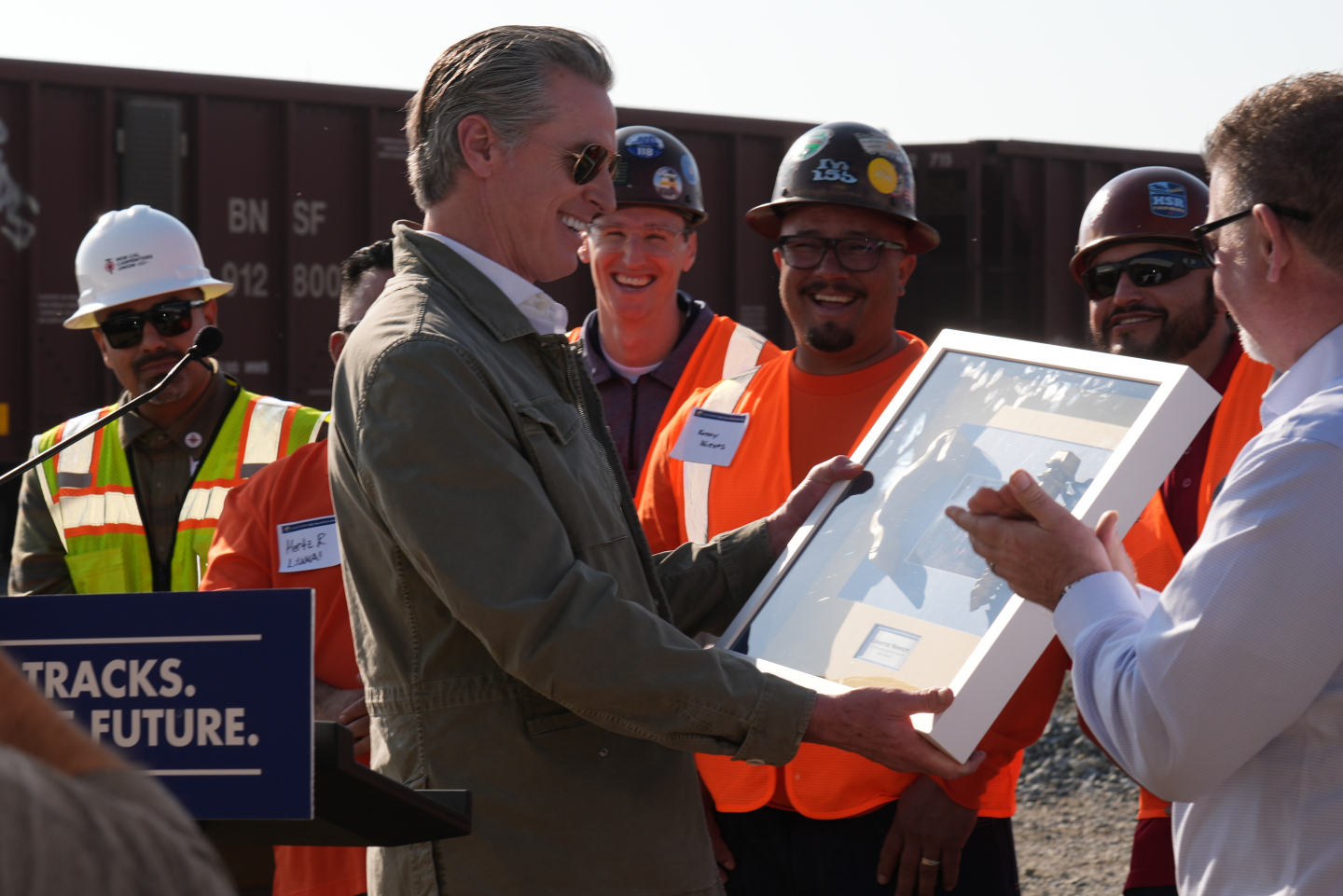
Rush Limbaugh used to say that “the free flow of oil at market prices” is essential for a stable national, and global, economy. According to Worldometer, global oil reserves today total nearly 1,800 trillion barrels, while consumption is up to about 38 trillion barrels per year (102 million barrels per day). Even if more oil can be discovered, there is a finite amount economically available – but enough to last deep into the 21st century. While supply is always a localized concern, disruptions to the supply chain tend to be the result of international conflict – or, in the case of California, political decisions aimed at driving away the oil business entirely.

C3 Bullion describes its mission as operating in the space between investors and gold mines by providing capital and expertise to gold producers in return for physical gold from the mines the firm works with. C3 Bullion says this is a happy medium between buying gold bars or investing in gold ETFs – or stepping into the mining sector itself. This approach, backed by a $50 million capitalization via its C3 Fund I, enables C3 Bullion to identify existing gold mining operations with sizable deposits but a need for capital investment to bring additional gold to the marketplace. The firm’s business model enables these companies to grow without having to compromise their equity.
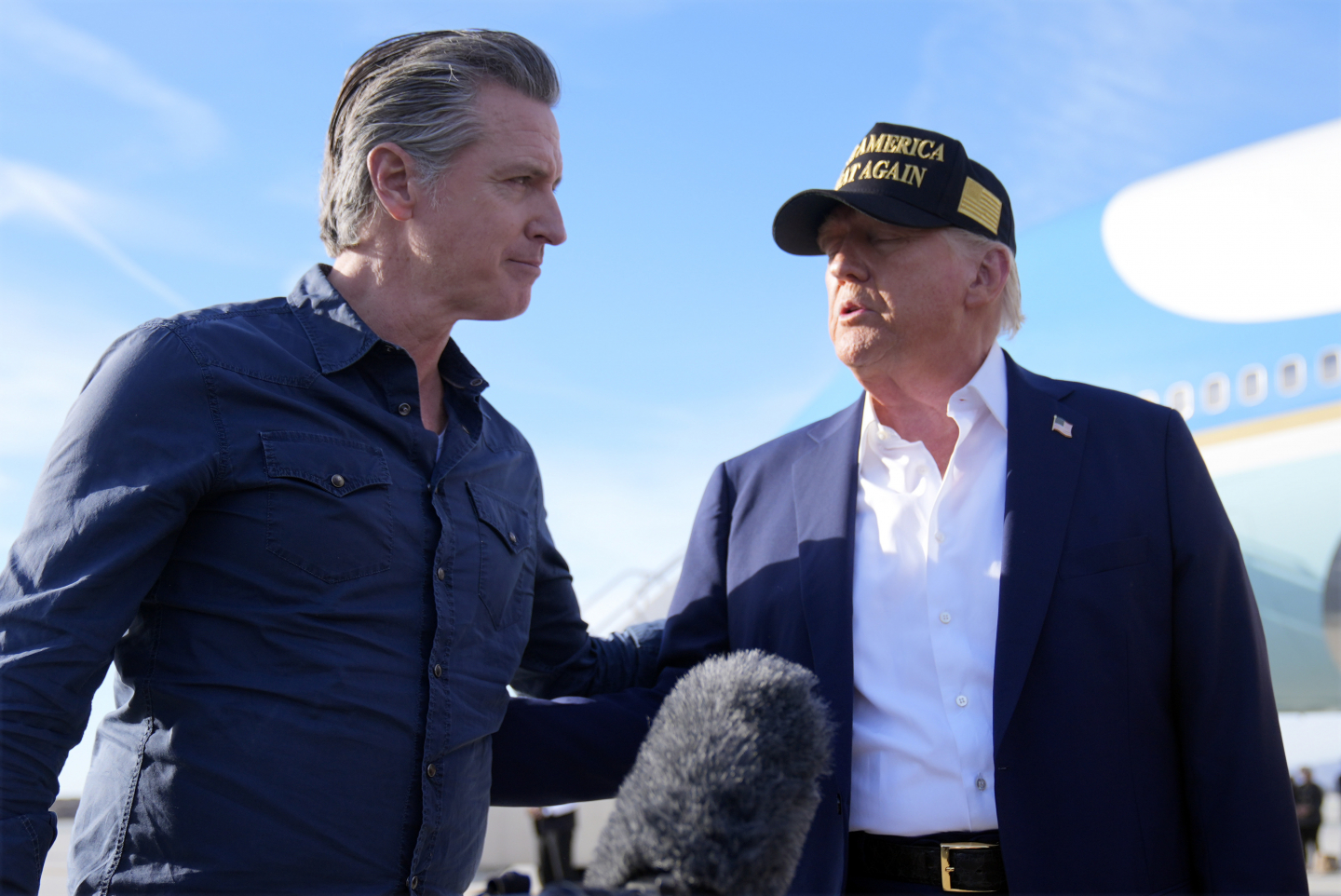
When President Trump last May signed an executive order calling for deployment of 300 gigawatts (GW) of net new nuclear capacity by 2050, it had to come as a shock to those who just a few years earlier were plotting a very different energy future – one built on wind turbines and solar arrays, the abolition of coal and natural gas, and maybe a wink and a nod toward what was perceived to be unaffordable nuclear. Back in 2011, a Massachusetts Institute of Technology report on the future of the electric grid stated that “One of the most important emerging challenges facing the grid is the need to incorporate more renewable generation in response to policy initiatives at both state and federal levels.”

Australian mining company Energy Transition Minerals spent years navigating the bureaucratic hurdles forming Greenland's regulatory system to secure a license to explore and ultimately extract rare earth minerals at the Kvanefjeld site, which is one of the largest untapped sources of critical rare earths. However, when a left-wing government came into power in 2021, Greenland retroactively changed the laws governing rare earth development, introducing a ban tied to naturally occurring elements – specifically uranium.
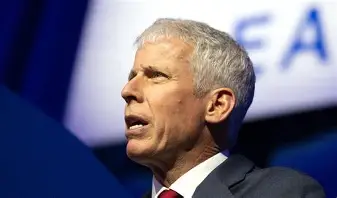
When Secretary of Energy Chris Wright on January 12 announced that the DOE had ended the use of the “As Low as Reasonably Achievable” (ALARA) principle for radiation safety directives and regulations, he was following both a directive from President Trump and a recommendation by scientists at the Idaho National Laboratory. President Trump, in Executive Order EO 14300, criticized ALARA and the linear no-threshold (LNT) model on which it is based, stating “Those models lack sound scientific basis and produce irrational results, such as requiring that nuclear plants protect against radiation below naturally occurring levels.” While the DOE has now complied with the President’s wishes, the same cannot yet be said about the Nuclear Regulatory Commission, where the ALARA principle outlined in Part 20 of its rules is still in force.

Nigerian President Bola Tinubu has taken one of the most consequential security steps the nation has seen in years, declaring that any individual or group bearing lethal weapons outside the authority of the Nigerian state will be treated as terrorists—along with anyone who enables them. The doctrine is sweeping, blunt, and intentionally unambiguous. In a country battered by insurgency, banditry, and organized crime, that clarity may be its greatest strength. Nigeria’s security crisis is no longer confined to the northeast or to ideologically driven insurgents such as Boko Haram and ISWAP. The violence has, frankly and sadly, greatly metastasized.
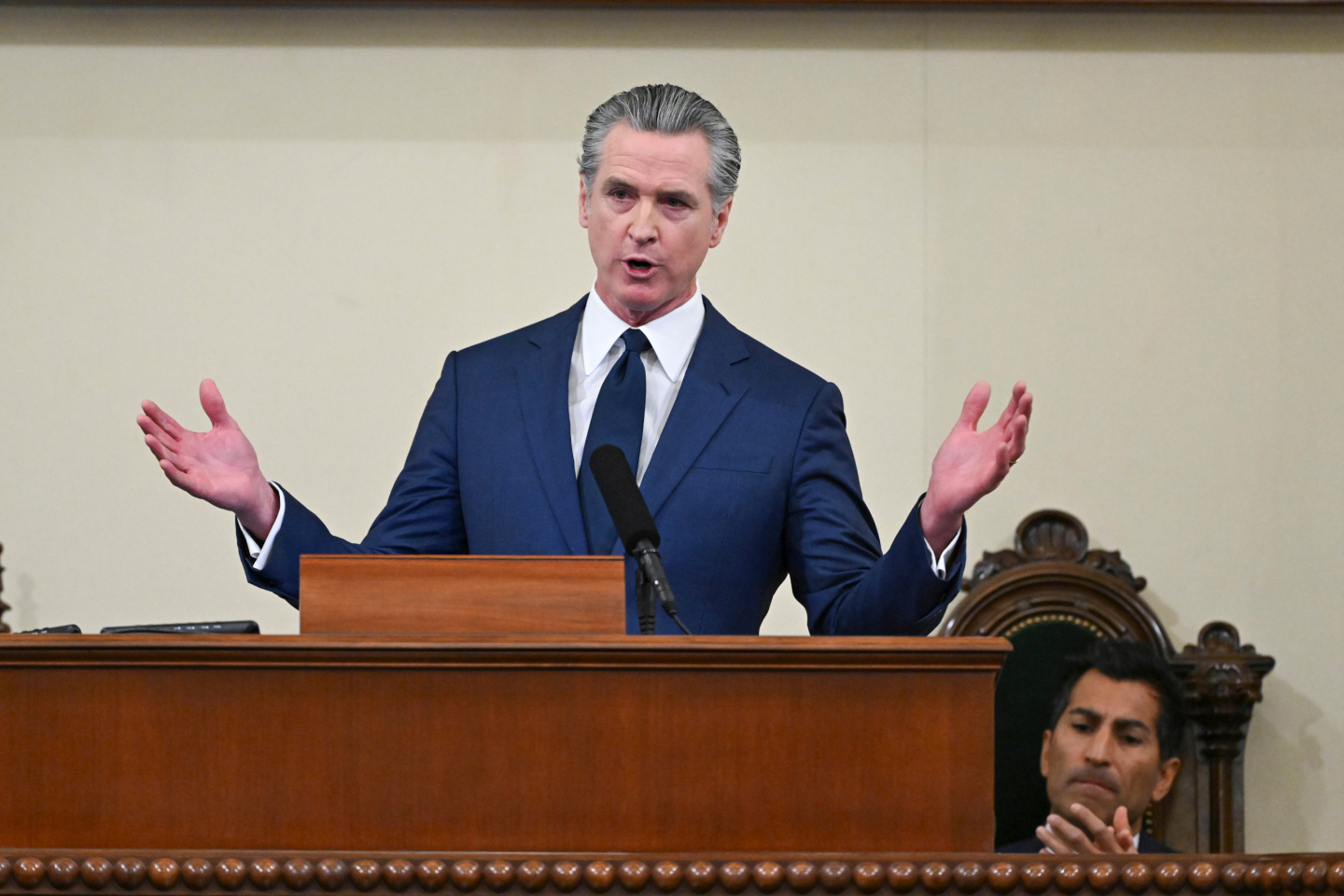
It was a long, hard fight, but California’s destructive “clean truck” mandate is (maybe) finally dead. But the problems caused by the “zero emissions” zealots linger on. Moreover, other California problems threaten to slow the nation’s rebounding economy and do great damage to the nation’s supply chain.... The utter stupidity of the CARB rules was called out by the Western States Trucking Association, which pointed to notorious, unchecked California wildfires that often leave large areas without electricity for days at a time – making charging ZEVs an impossible challenge.

Since the 1930s, Mexico has released hundreds of billions of gallons of untreated raw sewage into the Tijuana River, which flows north into San Diego County. This has caused years-long beach closures, foul odors, degradation of the Tijuana River Valley, and lost economic opportunity. These air- and water-borne pathogens make people sick on both sides of the border. Decades of neglect and intransigence were interrupted in 2020, when Congress approved a $300 million fund to expand the International Wastewater Treatment Plant San Ysidro, or so we thought. Instead, half of the allocation was used to address deferred maintenance after Hurricane Hilary further damaged the inadequate infrastructure. Meanwhile, Tijuana’s own crumbling wastewater system suffered several pipeline breaks, allowing 33 billion gallons of sewage and chemical tainted water to flow into San Diego just in 2024 – putting additional pressure on the U.S.-based plant, and causing it to rack up numerous clean water violations.
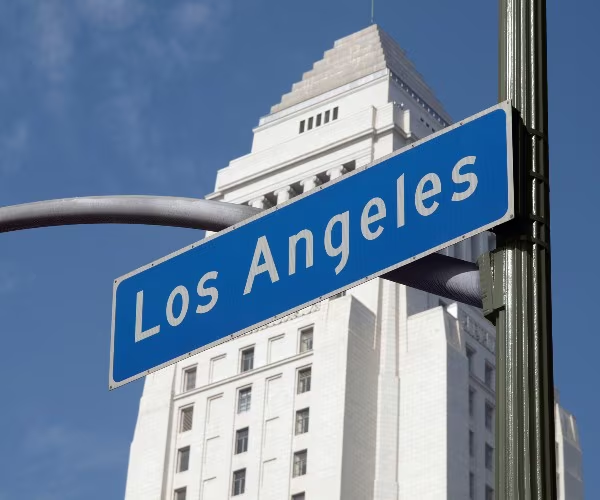
Investors and developers are finally fed up with the inaction of Los Angeles city officials when it comes to large-scale investment in the city. From housing projects to commercial office buildings, the city's complacency, endless red tape, and lack of accountability have led to dozens of failed or abandoned projects, driving businesses and capital away.
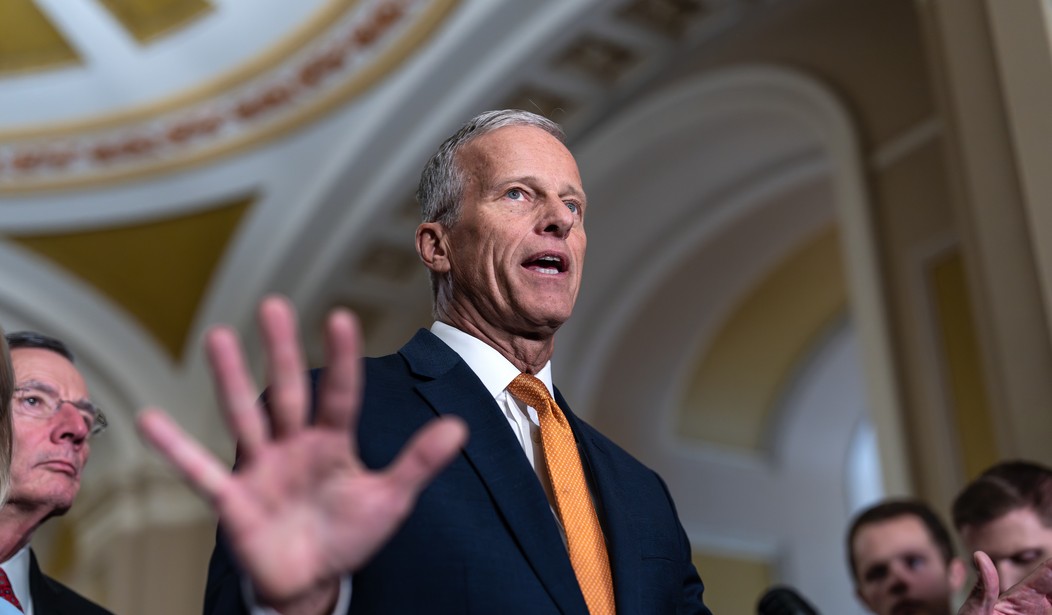
In a last-gasp flurry of activity, the 119th House of Representatives in December moved forward a bevy of bills aimed at shortening the time frame and the costs required for federal permits for infrastructure projects, many of which are deemed vital to national security. That’s the good news. The bad news is that these bills are now in the hands of a divided U.S. Senate that, in most cases, requires 60 votes to move a House-passed bill to the Resolute Desk. And, as Rep. Mike Collins (R-GA) says, quality legislation passed by the House all too often disappears into the “black hole” that is the U.S. Senate.

Chodosh says he has always encouraged faculty members to think deeply about not just the content of their courses but how they are put together. Are their syllabi teaching from a wide range of perspectives? Are they lecturing or trying to draw out the confidence of each student to become excellent and develop their own point of view? Classrooms, he says, should focus beyond the important interaction between students and faculty (top down) and to interactions among the students that can continue after class time – where most real learning should occur.

America’s battle to eliminate lead from tap water started slowly — and only forty years ago. No one wants another Flint, Michigan, horror story — but the simple truth is that in America it takes far more than Washington federal mandates and money for people at the local level to identify lead service lines and prioritize those in the greatest need of immediate replacement. The legal battles alone can take a decade or more. Meanwhile, the EPA and all of Washington over the past several decades have been hyper-focused on “climate change” while — until Trump 45 — ignoring real-world problems like water and wastewater infrastructure and the electric grid. If today’s timetable is too slow, look backward for the blame.

She hasn’t yet completed her Ph.D., but mental health clinician Karen Paul, founder and CEO of Lily Health AI, is already making strides toward expanding access to and destigmatizing mental health support in the United States, particularly for immigrant and underserved communities that are often excluded from traditional systems of care. Paul’s interest in psychology was shaped by her lived experiences and by observing the mental health struggles of family members and community members within South Asian immigrant contexts, where mental health concerns are often unspoken, untreated, or misunderstood. During her academic training, she became increasingly aware that traditional, textbook approaches to psychology were not reaching many of the communities most in need.
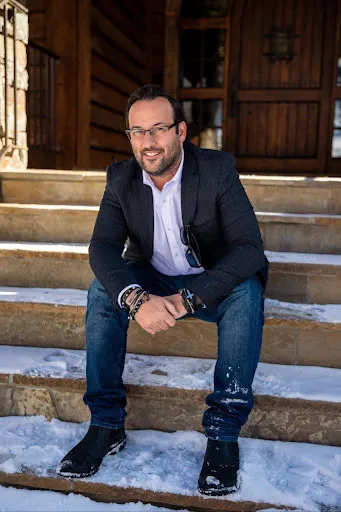
When a 70-year-old minerals company with its own 70-year-old security brought three-time Top Ten CEO of the Year Brian J. Esposito on board as its new CEO, company president and director Michael Reynolds knew it was time to take Diamond Lake Minerals Inc. (DLMI) to another level – by helping ethical businesses grow in this digital age. Esposito brought his 20-plus years of experience running Esposito Intellectual Enterprises (EIE) and the scores of companies and joint ventures he created across two dozen different industry categories into a vertically integrated ecosystem. He and Reynolds now have nearly two years of working to bring to the public marketplace timeless business principles focused on healthy, sustainable economic growth and strong earnings – and creating new value for stakeholders in the digital world.
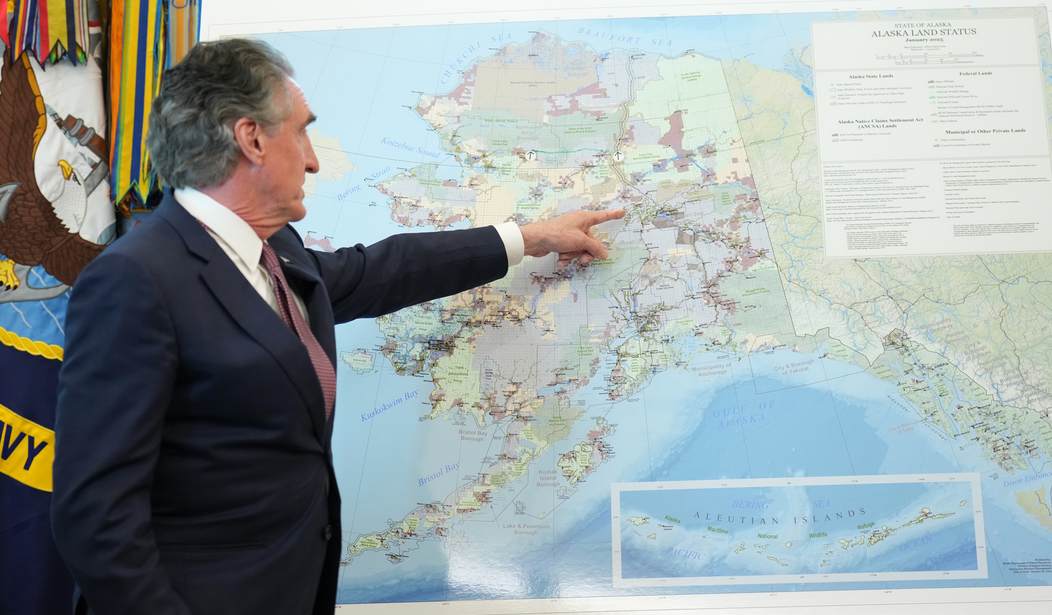
While President Trump views Alaska as harboring literal gold mines – and other valuable minerals, including its abundant North Slope oil and gas reserves – Callie Patteson of the Washington Examiner last week shed light on “how Alaska became central to Trump’s international trade policy....” [O]n his first day in office, President Trump issued his own executive order, dubbed “Unleashing Alaska’s Extraordinary Resource Potential.” He proclaimed that unlocking the state’s abundant and largely untapped supply of natural resources “will raise the prosperity of our citizens while helping to enhance our nation’s economic and national security for generations.”

The United States has been Nigeria’s strong Ally. In 2015, US Special Forces trained Nigeria’s Navy Seals on how to defeat Boko Haram. This was at the height of the Chibok girls kidnapping. Similar strategic partnerships and training are still undergoing between the US and Nigeria and these must be strengthened. It then goes without saying that the threat we face today is therefore not a regional aberration; it is part of a global continuum of violent extremism. Just as America was attacked on 9/11 by those who despised its values, Nigeria has, for over a decade, endured relentless assaults from the same ideology of hate. This is a common enemy, and the only ones laughing at the growing mischaracterization of Nigeria by some U.S. commentators are the sponsors and beneficiaries of Boko Haram and ISWAP themselves.
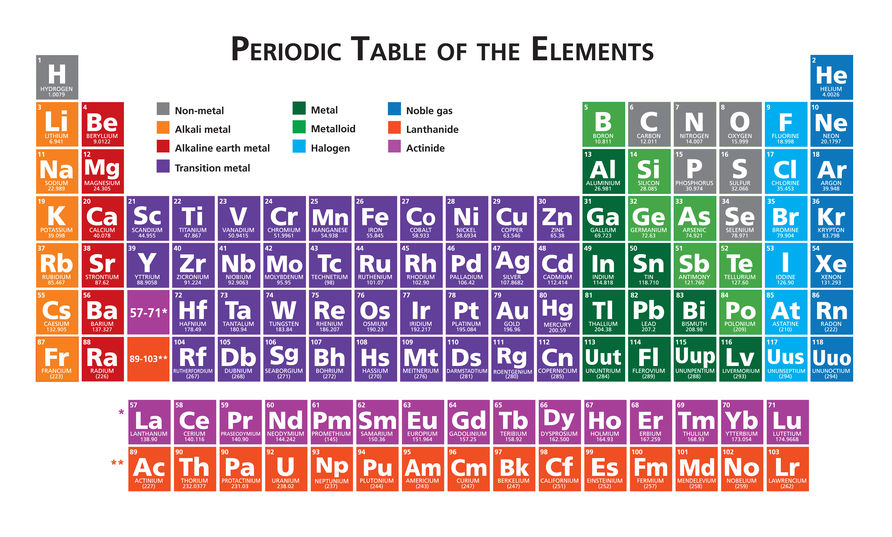
ardly anyone in 1972 saw President Nixon’s decision to reopen diplomatic relations with the Peoples’ Republic of China as the beginning of a half-century of America surrendering its mining and manufacturing superiority to the fledgling Communist regime. Successive administrations did little or nothing to halt the export of American skilled labor jobs, or even to promote skilled American labor as vital to national security. Unlike his predecessors, President Trump determined to promote American labor and restore mining and manufacturing as the pathway to a stronger nation and a prosperous economy. On March 20, President Trump signed Executive Order 14241, Immediate Measures To Increase American Mineral Production, in which he identified “overbearing Federal regulation” as a key factor in eroding the nation’s minerals production. Since then, he has traveled the world seeking binational partnerships to mine and process rare-earth metals critical to 21st century technologies.
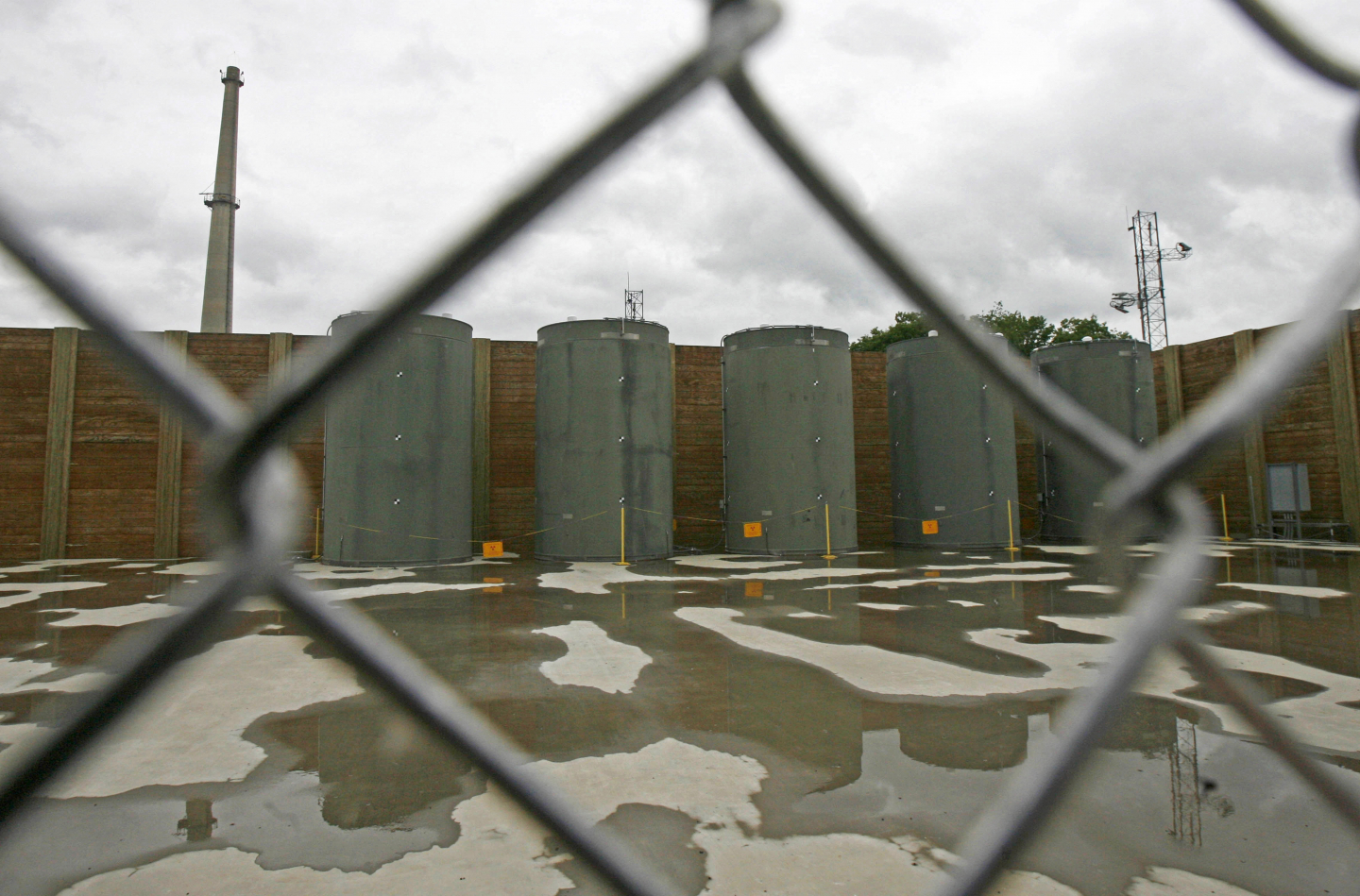
While lauding the White House’s goal of jumpstarting a nuclear renaissance, nuclear power advocate Steven Curtis says that putting new wine into the old NRC wineskin is a recipe for failure. So is throwing federal dollars at nuclear startups rather than merely removing the regulatory barriers and letting the market decide winners and losers. If the U.S. adopted true nuclear fuel recycling, says Curtis, the cost of nuclear-generated electricity could fall dramatically. First, from being able to use nearly all the uranium fuel to generate electricity; second, from significant reductions in the amount – and half-life – of the remaining “nuclear waste” and maybe even ending the quest for deep underground burial.

The recent re-designation of Nigeria as a Country of Particular Concern (CPC) by President Donald Trump, based on allegations of Christian persecution, has reopened old wounds and revived long-standing but inaccurate narratives — chief among them the claim that Nigeria is a place where the state sponsors systematic persecution of Christians. While this claim is emotionally powerful and politically charged, it collapses when weighed against history, evidence, and the lived reality of Nigerians. Nigeria's security challenges are undeniably real and painful, but interpreting them as a deliberate, state-sanctioned campaign against Christians is inaccurate and unfair.

Former PayPal CEO David Sacks, the White House AI and Crypto Czar, proclaimed that "the reign of terror against crypto is over, and the beginning of innovation in America for crypto has just begun." So why is the SEC continuing its campaign to destroy the one cryptocurrency company that played by the rules - before there were any rules? And so what was the motive for legal actions that have cost Unicoin's investors their opportunity to profit from their investments?

Seventeen years after then-candidate Barack Obama promised skyrocketing electricity costs as a result of his campaign to bankrupt the coal industry, President Trump’s Energy Department announced it would provide $625 million to expand electric power generation fueled by coal. As part of that commitment, Energy Secretary Chris Wright targeted $100 million for refurbishing and modernizing existing coal-fired power plants, with a focus on advanced wastewater management, fuel switching between coal and natural gas, and coal-natural gas co-firing systems. While the enemies of carbon dioxide emissions wail and gnash their teeth at the continued use of coal-fired electricity, practical world leaders listened carefully to Obama’s words: abandoning coal would, at the least, triple the cost of already scarce electric power for their emerging factories, data centers, hospitals, and schools.

Just as recycling of spent nuclear fuel could give a boost to the national grid without any additional mining, Andrew Sobko, CEO and founder of Argentum AI, is already “recycling” inactive and underutilized graphics processing units (GPUs) to decentralize and democratize cloud computing, providing affordable access for startups and smaller companies and adding up to 25% of available computing power without any new chip fabrication. Argentum AI is building a global network from the 30% of GPUs that today sit idle at businesses and local network centers. The firm acts as a connector between entities needing additional fast computing power and those otherwise idle GPUs.

Kevin Kong, founder and CEO of Everstar, says the reason that the U.S. nuclear workforce is aging is that its nuclear powerplants themselves are aging – for two reasons. Nuclear energy, Kong says, has perhaps the worst public relations in the history of commerce. It gets condemned for one or two bad days, while catastrophes with lesser fuels hardly slowed their development. That’s bad enough, he says, but an even bigger obstacle to a vigorous nuclear energy industry has for the past five decades been the regulatory Gordian Knot that has driven permitting and construction times – and costs – through the roof.

According to a new report from the National Association of Regulatory Utility Commissioners' (NARUC) Gas-Electric Alignment for Reliability (GEAR) Task Force, more than 189 million Americans and 5.6 million U.S. businesses rely on natural gas for residential heating and electricity. Last year alone, natural gas utilities added over 609,000 new residential and over 20,000 new business customers. Natural gas today meets more than a third of the total U.S. energy needs. The North American Electric Reliability Corporation says that “natural gas is the reliability fuel that keeps the lights on, and natural gas policy must reflect this reality ” and that “additional pipeline infrastructure is needed to reliably serve electric load.”
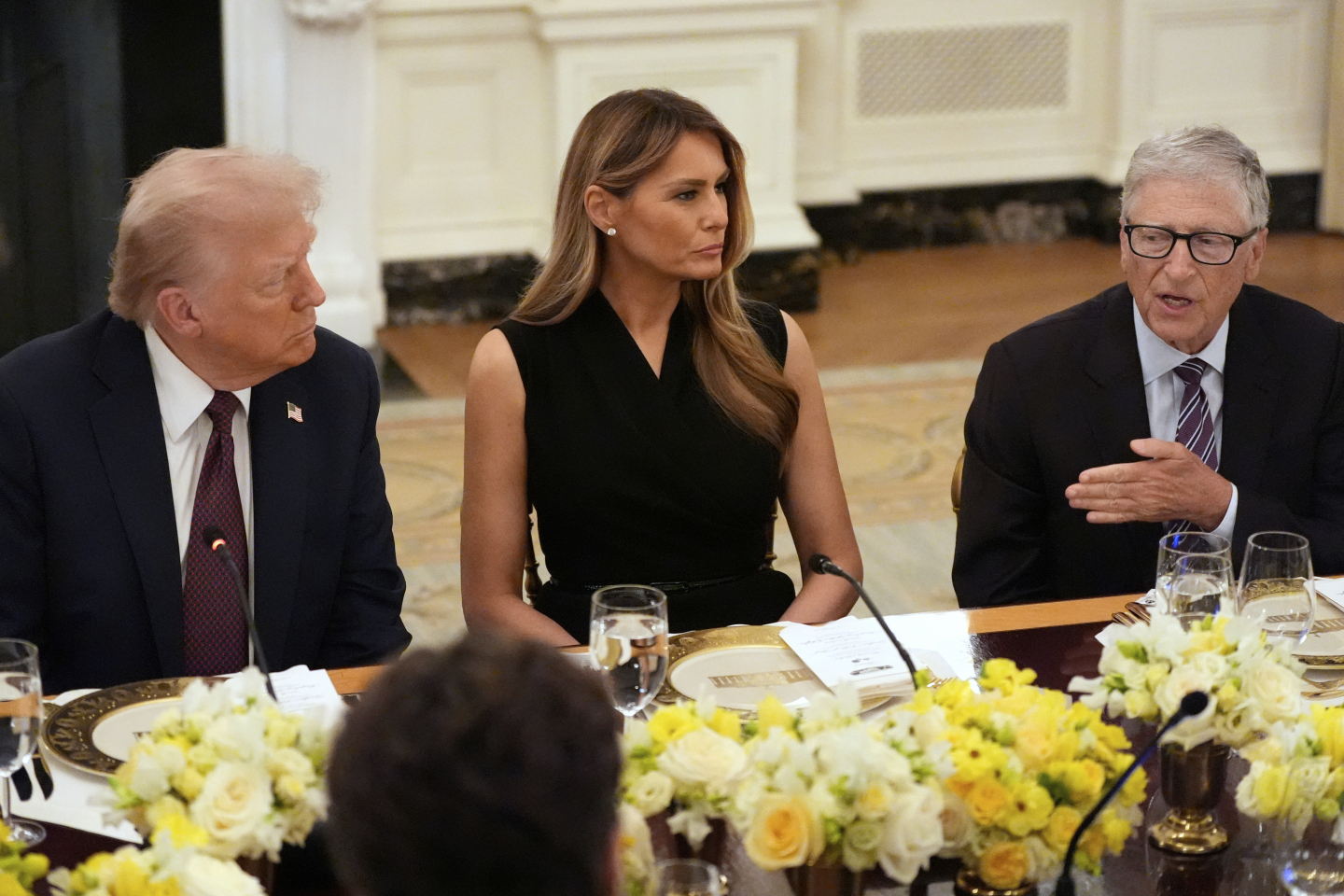
With a strong push from the Trump White House, the nuclear energy industry in the U.S. is, for the first time since Three Mile Island, bullish about its future. It’s about time, given that the average existing U.S. nuclear power plant was built based on 1980s technology. The shot heard round the world signaling a change in U.S. nuclear energy policy was the summary firing of NRC Commissioner Christopher Hanson, whose divinity school background may have contributed to a perception he viewed his job as more a gatekeeper for regulatory control than a partner in building a U.S. nuclear future.
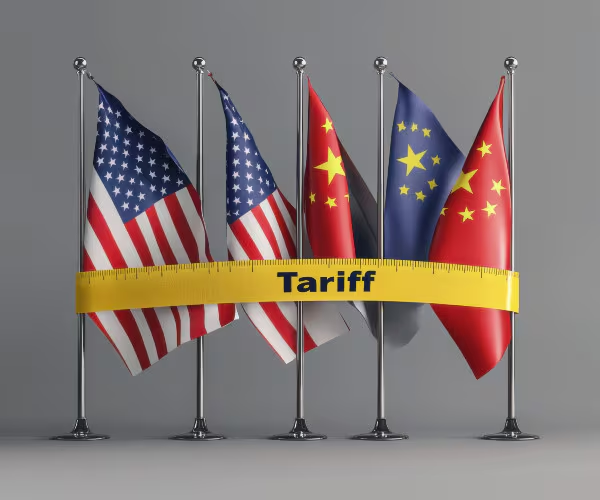
With the nation abuzz on the U.S. Supreme Court's notion to review challenges to President Donald Trump's authority to issue "emergency" tariffs — challenges previously upheld by the U.S. Court of Appeals — the administration faces two crucial battles: one in law, the other in public opinion. International arbitrator and Washington University law professor Milos Ivkovic argues that President Trump must prevail in both arenas.
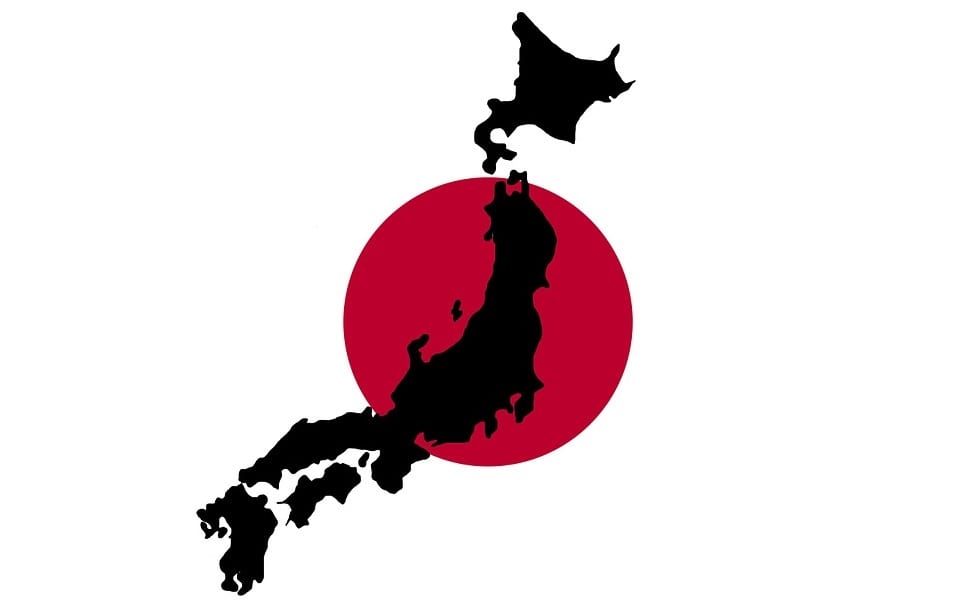
The concept of osmotic power is based on the principles of osmosis, the same process that helps plants draw water from soil and allows human cells to stay hydrated. Osmotic energy can be generated as water moves from areas with low salt concentration (fresh water) to areas with high salt concentration (seawater) through a special membrane. To capture this “blue energy,” ions migrate from the saltier side to the less salty side of the membrane in pursuit of equilibrium. The movement of water and ions generates a pressure differential that can be harnessed to drive a turbine to produce electricity. To maximize the impact, the Japanese plant uses concentrated seawater — the brine left after removal of fresh water in the nearby desalination plant.
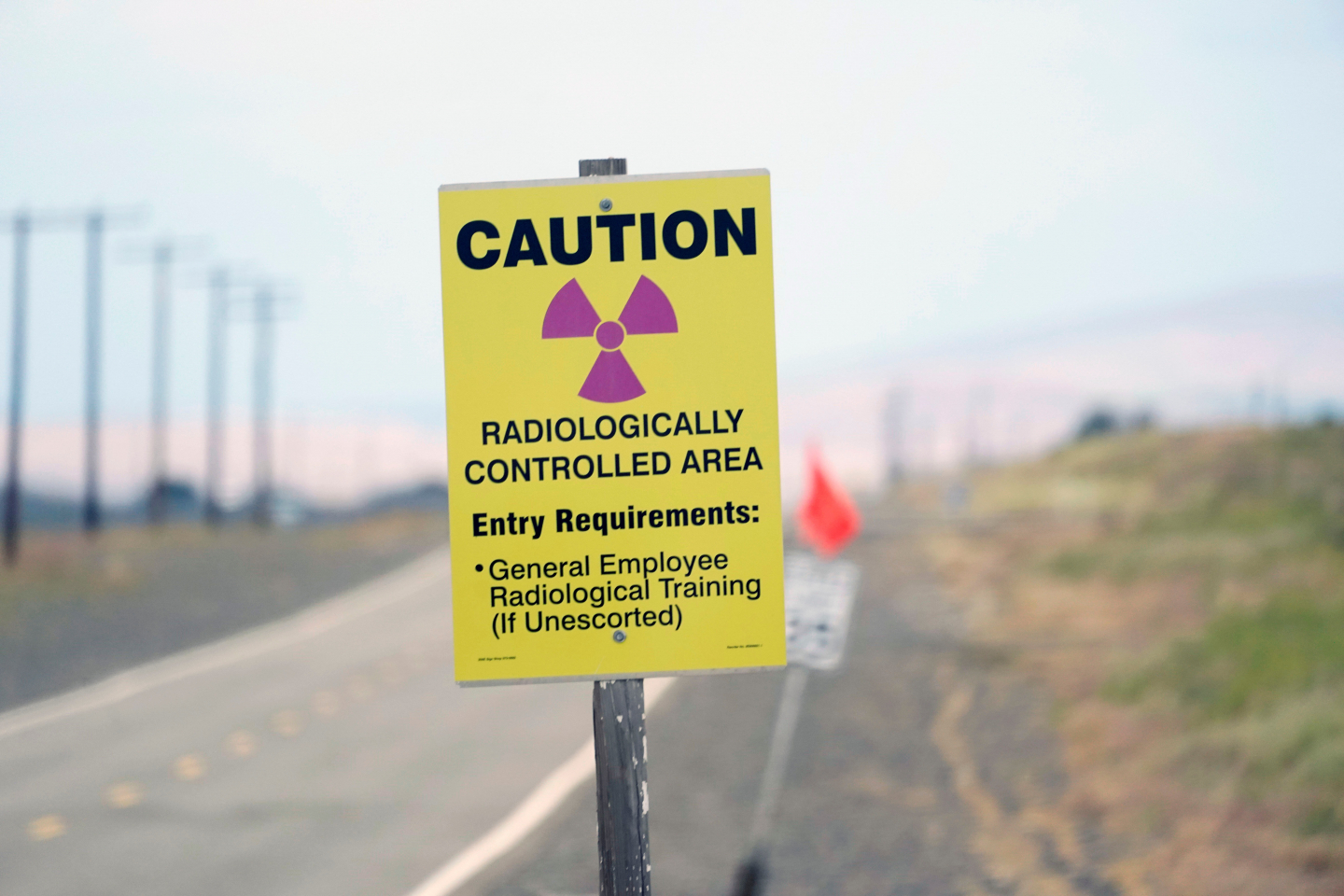
Back in May, President Trump signed four executive orders aimed at strengthening U.S. nuclear energy leadership and facilitating increased deployment of new nuclear reactor technologies. The orders spanned initiatives regarding nuclear fuel supply, waste management, workforce development, reactor exports, and more. President Trump, noting that domestic fuel sources today supply only 5% of the fuel used in U.S. nuclear reactors, focused on reversing a 48-year-old policy that bars reprocessing of spent fuel for commercial reactors and on reinvigorating the mining of domestic deposits of uranium and thorium that can power advanced nuclear reactors.
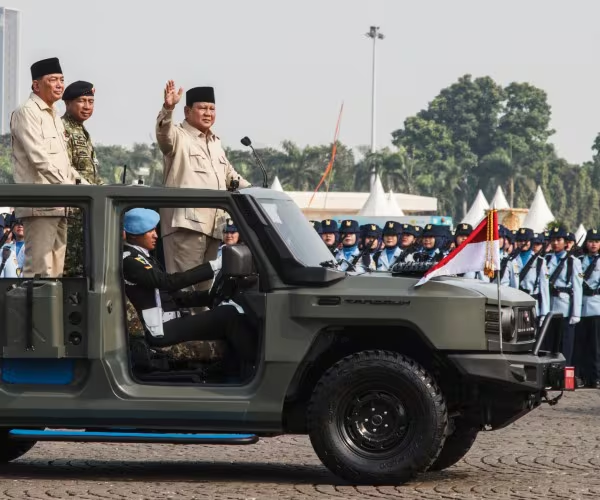
Nowhere is Prabowo's global leadership more visible than in his advocacy for Gaza. For Indonesians, solidarity with Palestinians transcends politics; it is rooted in their nation's anti-colonial struggle and shared Muslim faith. Yet Prabowo’s call for reform extends beyond Gaza. He has urged the creation of a stronger UN General Assembly and a reformed Security Council that better reflects today's geopolitical realities, including representation for the Global South. His argument is simple: nations that were absent from the 1945 world order now deserve a voice in shaping its future. Western powers, often skeptical of rhetoric from the developing world, may underestimate Prabowo’s capacity to deliver.
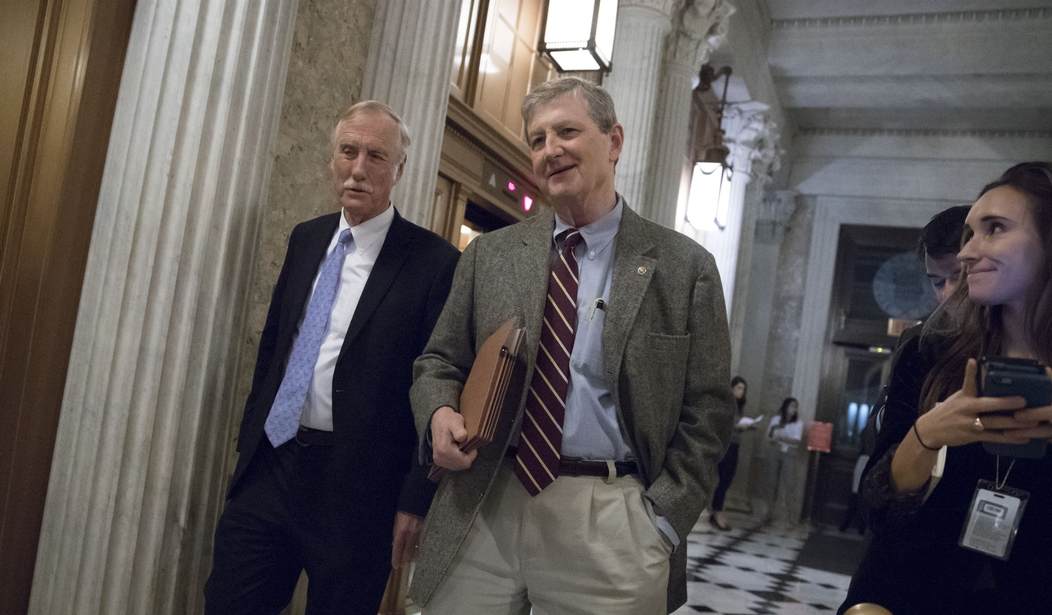
The Africa Growth and Opportunity Act expired on September 30, despite numerous efforts to continue the program that for 25 years has enabled sub-Saharan African businesses to export their products to the United States duty-free. The chief culprit, it appears evident, is the petty politics largely designed to prevent the Trump Administration from functioning. Congress once again appears more interested in the clown show than actual work, despite putting on a false front of eagerness to enable struggling African entrepreneurs to stay in business.

Trump scolded the UN assemblage for not recognizing that China has been playing Western nations as fools by selling Chinese-made wind and solar while building coal and natural gas plants to power the bulk of their industrial sector. “They use coal, they use gas, they use almost anything, but they … sure as hell like selling the windmills.” Italian President Giorgia Meloni, after calling for widespread reform of “outdated” UN conventions, turned to assault “30 years of ‘blind-faith globalization’ [in which] things have not gone well, and things could get worse. ” The UN must halt its “unsustainable green plans in Europe and the West, which are leading to deindustrialization far soon than decarbonization.”

Indonesia’s cosmetics industry in 2024 was valued at US$7.4 billion (one-seventh of the world market) and growing. That growth rate could skyrocket in years to come, in part due to President Prabowo Subianto’s emphasis on growing his nation’s economy. Paragon Technology and Innovation, Indonesia’s largest cosmetics company with 25% of the domestic market, is a family-run business that began in a garage 40 years ago. As part of Paragon's major expansion into Mideastern markets, the company is in discussions with Saudi Arabia to partner in bringing a Saudi-based Paragon-like company to its people. "We have the brand and the talent, and they want to collaborate with us," said Subakat.
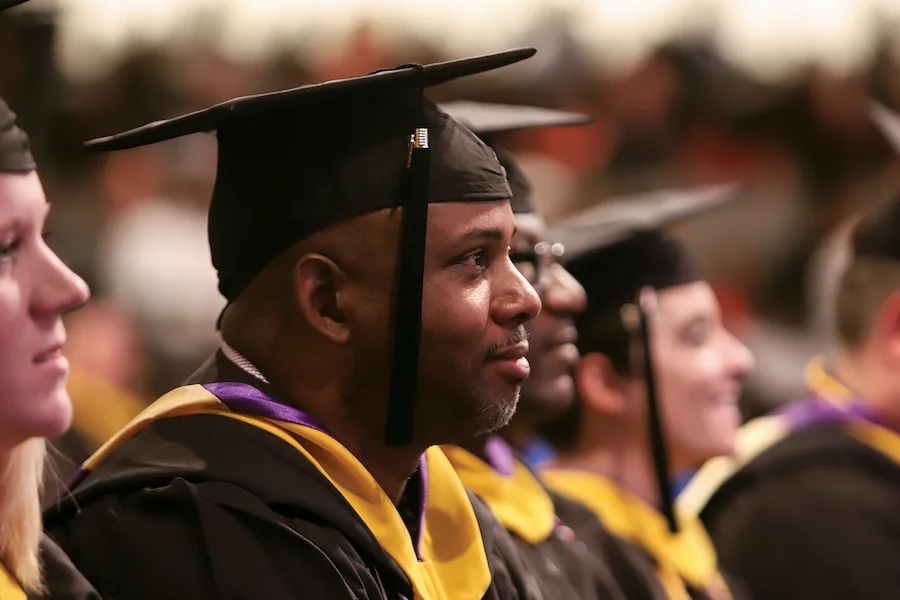
The American Nurses Association warns that the U.S. could be short more than 1.2 million registered nurses by 2030—a deficit colliding with an aging population and a wave of retirements. The response can’t be a simple head-count triage. It requires sustained investment in nursing education, leadership, and the institutions that cultivate both.

In the second largest merger and acquisition deal ever made in the mining space, London-listed Anglo American and Canada's Teck Resources announced a planned merger into a new company to be known as Anglo Teck. Anglo American had been approached by Melbourne-based BHP Group — the world's largest by market cap and third largest by revenue — on multiple occasions, after Anglo American had announced an asset review following a 94% plunge in annual profit and write-downs at its diamond and nickel operations.

According to a recent Deloitte survey, 62% of supply chain leaders cited compliance and dispute resolution as major challenges, with revenue leakage from errors, deductions, and missed claims costing companies billions annually. "Suppliers are under constant pressure to remain compliant while also navigating cost inflation, tariff-driven price swings, and increasingly fragmented supply chains," said business strategist Scott Benedict, a former Walmart executive. "Recovering lost revenue has become not only a matter of profitability but survival."

Washington has recognized that we have a problem. And it’s not China. According to S&P Global, the U.S. has a sizable resource base, including ample reserves of copper, lithium, and several other critical minerals. But it takes an average of twenty-nine years (that’s 29 years!) to develop a new critical minerals mine in the United States, longer than any nation except Zambia. Without radical changes in the permitting process, minerals independence – even interdependence – is just another dystopian dream. The sad result of this combination of negligence and intransigence has left the U.S. with just two domestic rare-earth mines – but not a single processing operation. Other mining operations are equally hampered by a combination of decades of well-organized, well-funded environmental opposition coupled with the naïve belief that Communist China would always provide cheap labor for America’s benefit.
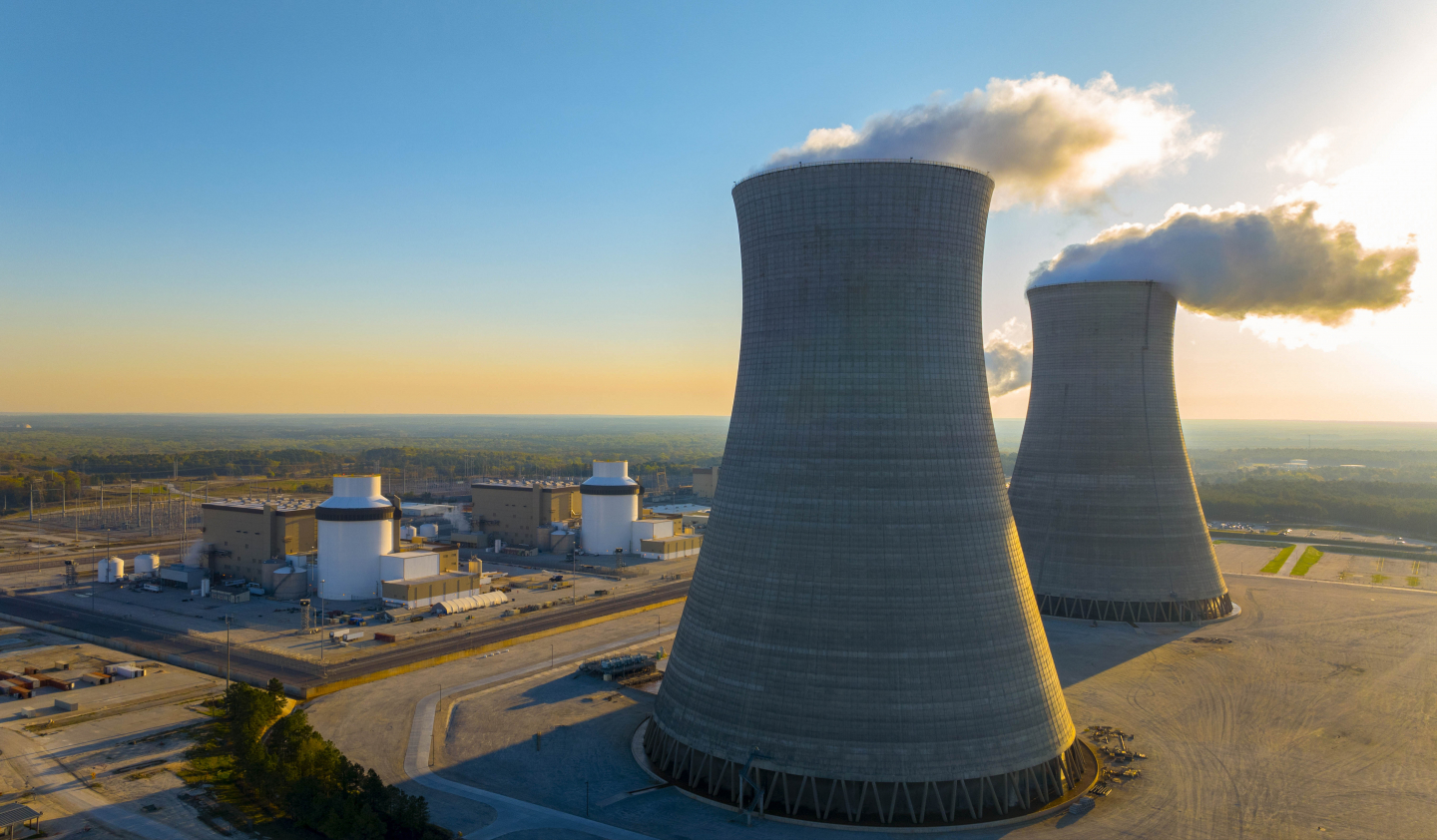
As Tim DeChan reports, three key technological advances have turned the dream (or, to some, the nightmare) of fusion energy from science fiction to planned operational status before the end of President Trump’s second term. Tbe trio? More powerful computer chips, more sophisticated artificial intelligence (AI), and powerful high-temperature superconducting magnets.

Launching a cryptocurrency company in America has never been for the faint of heart. But for Unicoin Inc., a firm priding itself on being the most compliant, transparent, and institution-ready player in the industry, the journey has been less about innovation and more about survival.

The Trump Administration has said repeatedly it intends to bolster the economy by leveling the playing field for cryptocurrency companies and the coins they generate. But the Securities and Exchange Commission under former commissioner Gary Gensler conducted a virtual vendetta against cryptocurrencies. The Gensler-led SEC forced cryptocurrencies to operate under oppressive rules that must not be used against cryptocurrencies today. It was right to place ongoing cases against cryptocurrencies on hold until appropriate regulations and policies for cryptocurrencies are established.

In the throes of the summer, the Trump administration announced an Agreement on Reciprocal Trade with the Republic of Indonesia — the world’s third largest democracy — that builds on the 1996 U.S.–Indonesia Trade and Investment Framework Agreement. Key features of the agreement related to tariffs and other barriers to bilateral trade, environmental protections, and labor rights. The agreement, a feather in the caps of both President Donald Trump and Indonesian President Prabowo Subianto, was reached following lengthy discussions between Treasury Secretary Scott Bessent and Indonesian Coordinating Minister for Economic Affairs Airlangga Hartarto. At one April meeting, Minister Hartarto had said, “We favor fair and square trade activities — Indonesia will boost its purchase of essential commodities from the U.S., such as oil and gas, as well as agricultural products.”

The Trump Administration wants to limit U.S. reliance on foreign sources for uranium ore and processed uranium oxide fuel, much of which has come from Russia. Under policy announced in May, the White House sounded the alarm that the nuclear fuel cycle infrastructure has severely atrophied, with only about 5% of fuel used in U.S. reactors coming from domestic sources. Many U.S. advanced reactor developers are testing their designs with Tri-structural ISOtropic particle fuel. TRISO, which the DOE has called “the most robust nuclear fuel on Earth,” also has uses in older pebble-bed designs. Industry and government officials see TRISO as a cost cutter for the broader microreactor industry – and for high-energy-using industries.

If, as our own Declaration of Independence (from an English Leviathan) insists, “all [humans] are created equal” and are endowed with the rights of life, liberty, and the right to determine their own futures, then we should welcome these democratizing innovations brought by technology – and, as the Chinese once said, “let a thousand flowers bloom.” But that can only happen when those gifted with leadership acknowledge the value of human freedom and learn better to listen to other voices and find common ground on which to build a truly better world. Mandates are a tool of tyrants. Standards are the product of experimentation, comparison, and agreement – and continual refinement.

The global push to regulate carbon dioxide as a pollutant, based on the questionable premise that increasing CO2 concentrations in the atmosphere threaten to trigger a global climate catastrophe, has wreaked havoc on energy and economic development in the United States, Europe, and Africa while giving so-called “emerging” nations like China and India a virtual free pass. Europeans and Americans are just beginning to awaken from the deep slumber that was about to result in a Chinese takeover of global automobile sales, thanks to their lower priced (subsidized) electric vehicles that are powered by Chinese-made batteries using Chinese-processed lithium and other critical minerals that they had stockpiled for decades while the West slept. By contrast, the decision by Western powers to deem China and India as “developing nations” exempt from early restrictions on emissions has had dangerous geopolitical repercussions – and even allowed Russia to further disrupt Western economies.
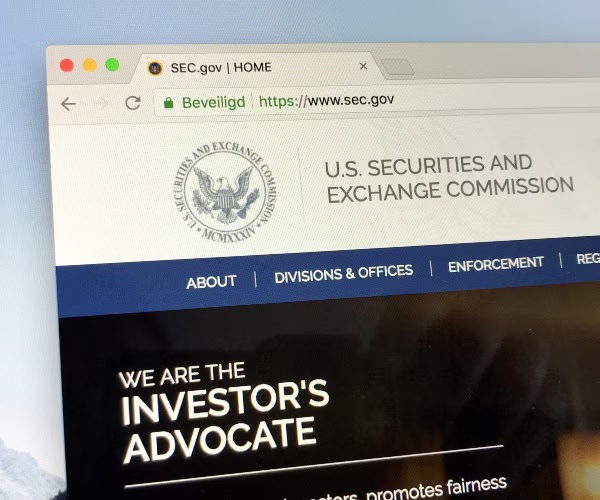
KINLUX.club mirrors core themes from the SEC's dialogue: Liquidity: Transforms traditionally illiquid real estate holdings into tradable tokens. Transparency: Embraces on-chain recording and smart-contract facilitated transactions. Accessibility: Opens real estate investment to a broader audience with lower barriers to entry.
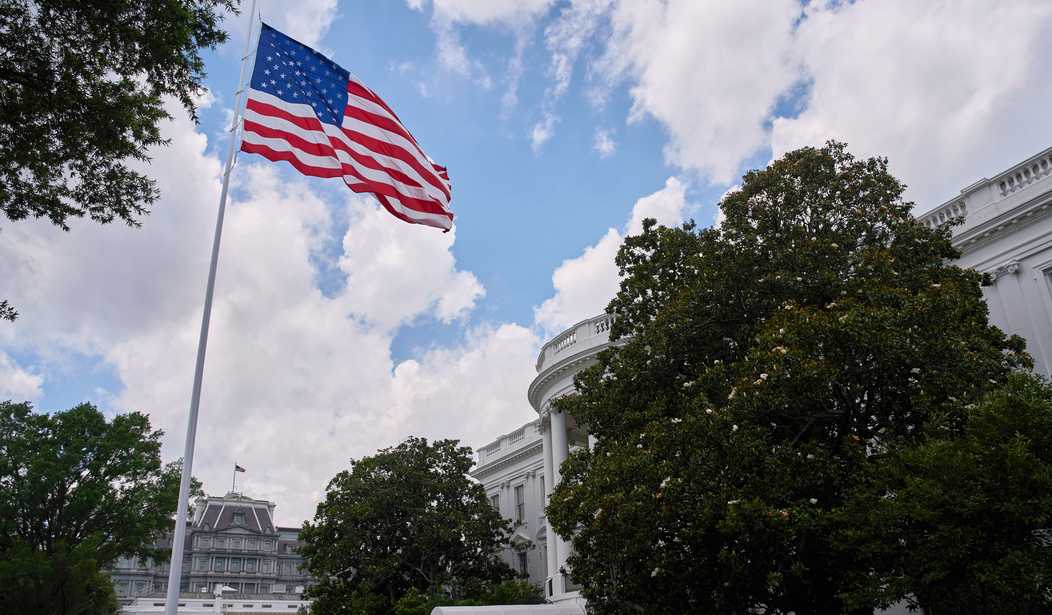
In 1866, President Andrew Johnson’s administration appointed Pomutz U.S. Consul General in St. Petersburg. There, in the opulent but politically intricate court of the Tsars, George Pomutz played a pivotal role in the negotiations that led to one of the greatest land purchases in history — the acquisition of Alaska. He is specifically credited for advising Tsar Alexander III to get rid the Russian Empire of the territory, citing its lack of vegetation, atmospheric conditions, and other arguments.

Through its state-owned nuclear energy company Rosatom, Russia under Vladimir Putin has extended its tentacles deep into Africa. Early in this century, Russia began escalating its outreach, offering its significant expertise in nuclear energy to emerging African nations eager to utilize the continent’s ample uranium resources to power their futures.... Meanwhile, the U.S. Office of Nuclear Energy held its first-ever U.S.-Africa nuclear energy summit in Accra, Ghana, in May 2024, boasting that the event “laid a foundation for sustainable nuclear energy growth” across the continent. Never mind that Russia was far, far ahead.
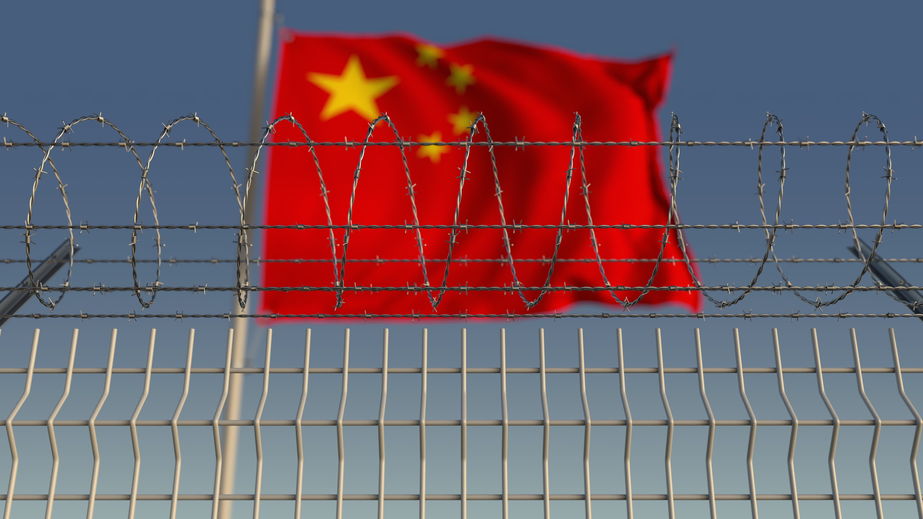
Dr. Mamtimin Ala, an Australian Uyghur serving as the President of the East Turkistan Government in Exile, says that China views the assimilation and genocide of all Turkic nationalities in East Turkistan as a “necessary and final solution” to the East Turkistan problem. As such, the Chinese continue relocating colonists into the region as they continue to decimate the indigenous populations. Recognizing that no military help is coming to rescue the suffering millions, the Uyghurs’ best hopes remain in either collapse of the Chinese communist government or a total boycott by Western nations of products manufactured in Xinjiang and of raw materials mined by slave labor there.

White House artificial intelligence and crypto czar David Sacks is today but one of many who believe that America and much of the world will soon fall in love with actual robots that assist them in chores from folding laundry — as Tesla's Optimus apparently can already do — to taking out the trash, washing dishes, and performing other household chores. Robotic machines already are performing major functions in fields from manufacturing to land mine and bomb removal.
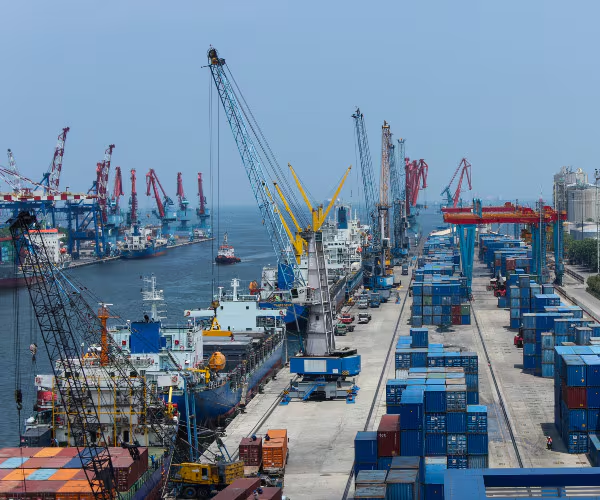
The Deal Slams the Door on Chinese Products Being Shipped Through Indonesia to the U.S. to gain the lower tariff than that imposed by President Trump on President Xi Jinping's Regime Indonesian President Prabowo Subianto celebrated the signing of a new trade pact with the United States with an Instagram post mentioning his "very good call" with President Donald Trump. Prabowo, who had campaigned on expanding Indonesia’s role in global affairs, boasted, "Together, we agreed and concluded to take trade relations between Indonesia and the United States into a new era of mutual benefit between our two great nations."
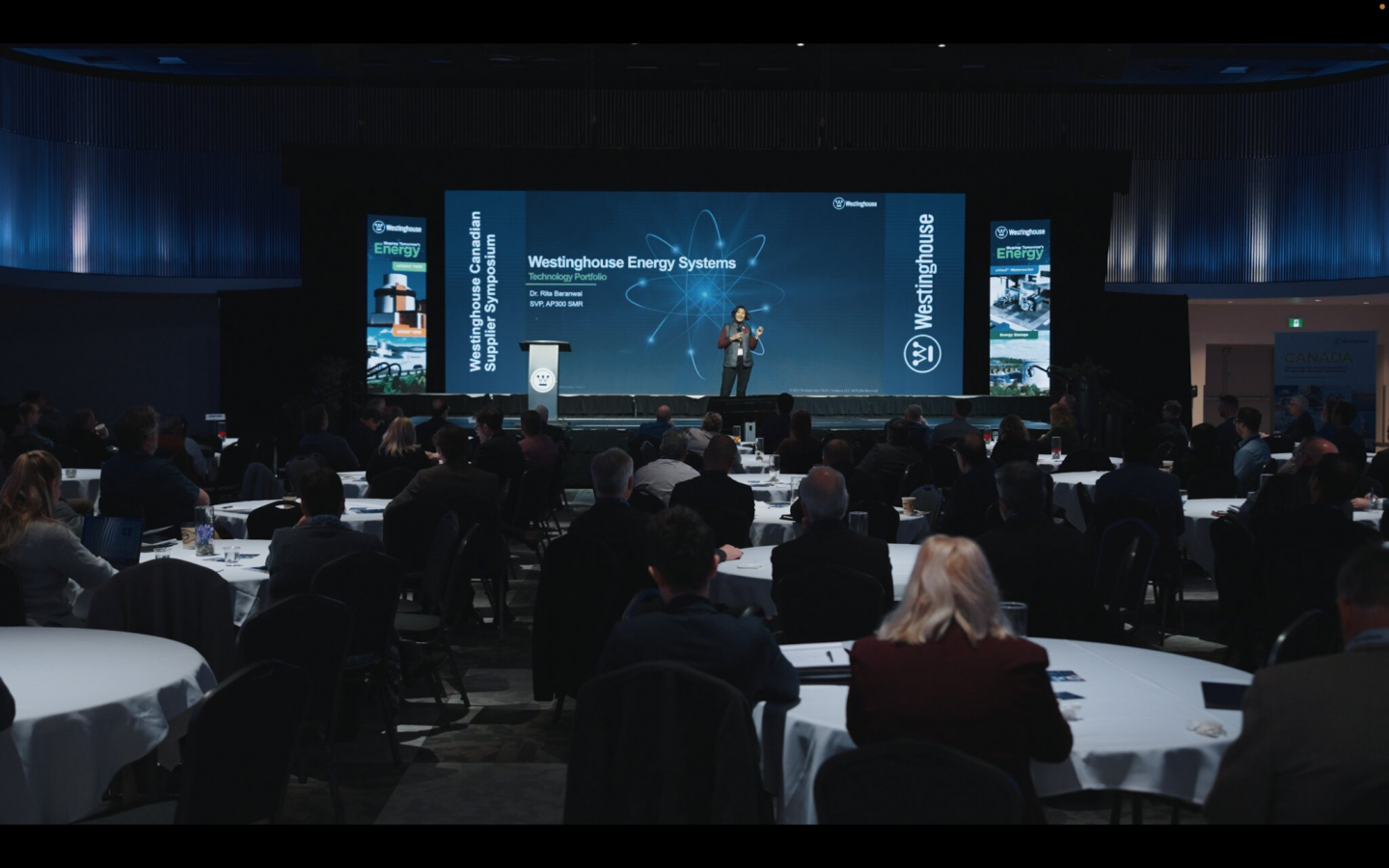
Energy Secretary Chris Wright says that large nuclear plants are more expensive largely because they must be built on-site, whereas small modular reactors (SMRs) can be mass produced in a factory; smaller microreactors are even more mobile and can be deployed in emergencies or at remote sites with moderate power needs. These smaller reactors are perfect for data centers, military bases, and other facilities needing uninterrupted power.

On July 18, President Donald Trump signed the Guiding and Establishing National Innovation for U.S. Stablecoins Act, known as the GENIUS Act, into law, fulfilling one of his campaign promises to the cryptocurrency community. Meanwhile, the Digital Asset Market Clarity Act, known as the CLARITY Act, was approved by the House of Representatives (H.R. 3633) and may win Senate approval before the August recess. Much of the credit for these two landmark statutes — and for the CBDC [central bank digital currency] Anti-Surveillance State Act, which also won House approval last week — goes to 29-year-old Bo Hines, whom President Trump chose last December as executive director of the Presidential Council of Advisers for Digital Assets, the chief aide to White House artificial intelligence and crypto czar David Sacks.

Ever since Sara Saleem crawled out of her prison window in Basra 11 years ago, the Iraqi-born Kurdish American citizen has been waiting for the kind of help she once expected her government would provide — ensuring that her captors receive proper punishment and that her own stolen fortune is restored. She's still waiting. While Saleem hopefully says, "I have faith in the U.S. justice system," her attorneys have also asked President Donald Trump to intervene in her case. Human rights organizations have not championed her cause. Why? Nor has the U.S. State Department — four months after her meetings with their human rights staff! But to whom else can she go? As Saleem says, "If my own government won’t act, who will?"

Sixteen years ago, Zambian economist Dambisa Moyo published Dead Aid, where she demonstrated an inverse relationship between receipt of government-to-government aid and economic growth and prosperity. Government-to-government aid, she said, fuels corruption, encourages inflation, increases recipient nations’ debt load, kills exports, causes civil unrest, frustrates entrepreneurship, and disenfranchises citizens. Moyo’s better idea was freer trade (European agricultural subsidies were shutting out African exports), foreign direct investment, and the infusion of private capital. The primary need across Africa was job creation. Echoing Moyo, Independent Institute President David J. Theroux told Investor’s Business Daily that “where governments dominate, society enterprising individuals typically are stifled. Their talents and energies are misdirected into political patronage.”

Nobody is saying it, but the advent of artificial intelligence and machine learning may be springboarding the increased intensity of the competition for nuclear fusion – which many are now saying is far less than “30 years away.” The burning question among the few who are fully aware of the stakes in this race is “Who will get there first?” coupled with “Does first matter more than best?”
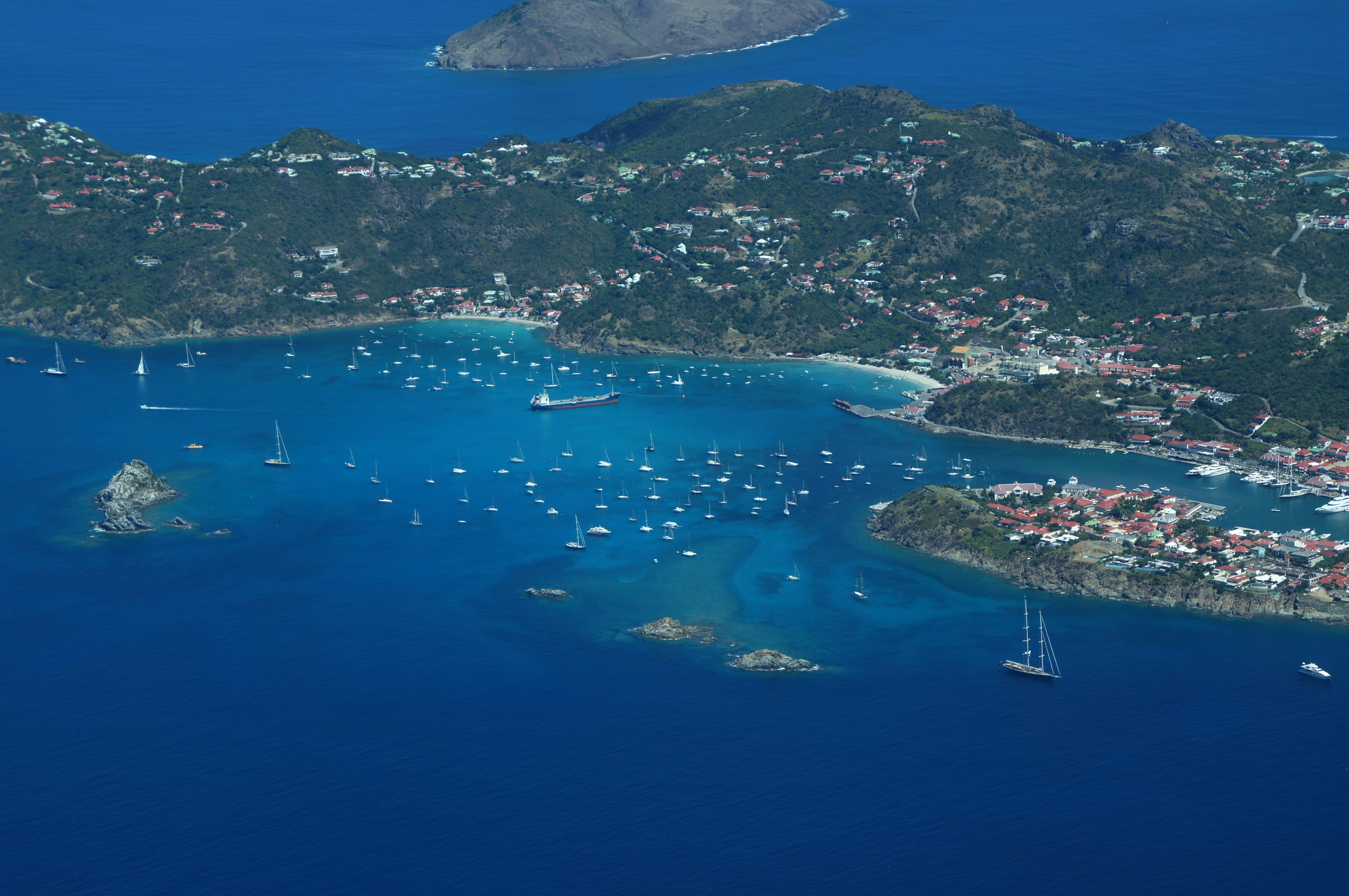
Select Language St. Kitts & Nevis Welcomes Citizenship by Investment .By Duggan FlanakinJuly 11, 2025 St. Kitts & Nevis Welcomes Citizenship by InvestmentHolger Woizick Established in 1984, the St. Kitts & Nevis Citizenship by Investment Program is one of the oldest and most trusted in the world. Investors can qualify through either a real estate purchase or a donation to the Sustainable Growth Fund (SGF). No one has appreciated the CBI program more than 36-year-old James Charles Taylor, who has become an avid spokesperson for the program. When Taylor first applied for citizenship of St. Kitts & Nevis, which requires purchasing a property with a value of at least £300,000, the attraction was conventional: a passport that unlocks hassle-free travel and lower taxes – and, of course, the sunshine, healthy environment, and slow-paced lifestyle freedom that islanders have long enjoyed.

The Trump administration's effort to cut federal spending has raised alarms at Meals on Wheels America, which says that funding through the Older Americans Act (OAA) was already not keeping pace with the rapid growth in the senior population — and with costs that rose dramatically in the wake of the COVID-19 pandemic. Trump administration officials may indeed have the answers to all of these concerns. But, until they deliver the goods to ensure that the elderly and disabled are not being left behind by certain administration initiatives, the concerns of the elderly — and of those dedicated to keeping them independent, cared for, and without fear — will remain.

Ever since Sara Saleem crawled out of her prison window in Basra 11 years ago, the Iraqi-born Kurdish American citizen has been waiting for the kind of help she once expected her government would provide – ensuring that her captors receive proper punishment and that her own stolen fortune is restored. She’s still waiting. For curious reasons, human rights organizations (fearful of Islamic wrath?) have not championed her cause. Nor has the U.S. State Department – four months after her meetings with their human rights staff. But to whom else can she go? As Saleem says, “If my own government won’t act, who will?”

Even though he had spent 25 years in the private sector, Hanson seemingly was in the President’s view prouder of the NRC’s 50-year history of stifling the development of nuclear energy in the U.S. than of its opportunity to partner with scientists, engineers, and others to redesign its regulatory framework to facilitate rapid growth of safe and affordable nuclear energy for America’s future. What President Trump says he needs is a referee, not an opposing head coach.

For generations, says Doug O’Brien, President and CEO of the National Cooperative Business Association CLUSA International (NCBA), Americans have relied on cooperative businesses to take control of their economic lives. Beginning in the 1930s, cooperatives brought electricity to farms and rural communities across the nation. Today, cooperative financial institutions (credit unions) serve over 140 million Americans. Today, says O’Brien, it is again time for people and policymakers to trust the cooperative business model to provide economic opportunity and resilience.

On Billie Joe McAllister Day, the U.S. Supreme Court shockingly issued an 8-0 decision (Justice Gorsuch abstaining) that substantially limits the scope of the 55-year-old National Environmental Policy Act, the nation’s foundational environmental law. The decision dealt a huge blow to rent-seeking attorneys, shakedown artists, “anti-progress” obstructionists, anarchists and socialists, and others now horrified that the federal permitting system has had its wheels greased. For decades, enemies of construction projects – highways, pipelines, railways – and any other activity using federal funds deemed to have a “significant environmental impact” have slowed or stopped them outright, adding huge costs for document preparation and defense, additional monitoring, activity restrictions, and mitigation and for never-ending public review. Moreover, state and even local NEPA laws and regulations extend their reach far beyond federal projects.

Africa’s minerals industry got a wake-up call when Signal Risk director Ronak Gopaldas and Rohitesh Dhawan, president and CEO of the International Council on Mining and Metals (ICMM), wrote that “Africa’s resource-rich countries must recalibrate their strategies” in response to recent global turbulence. The decade-long trade wars, pandemic-induced disruptions, and Russia’s invasion of Ukraine exposed vulnerabilities in mineral supply chains, forcing governments and corporations to adopt de-risking strategies, as economic and security priorities have become increasingly intertwined. African nations are for the first time in a position to manage their own minerals portfolios.

The age of robotics paired with artificial intelligence ('A.I.') has arrived – and while some may still fear this means that humans will soon be jobless and rudderless, or even driven to extinction, others point to the ability of these two revolutionary tools to bring about a prosperous, peaceful world. One of the leaders in the development of humanoid robots, Foundation Robotics founding CEO Sankaet Pathak, says that his creations are addressing critical challenges – defense, manufacturing, logistics, and labor -- those that stand in the way of expanding the scope and scale of human consciousness. Without the automation that robots bring, he contends, expansion will continue to come at the cost of human lives.

Less than two weeks after President Trump signed a series of executive orders intended to “usher in a nuclear energy renaissance” in the United States, major nuclear energy projects have suddenly moved forward. The bureaucracies at the Department of Energy and the Nuclear Regulatory Commission, long known for stalling nuclear projects, seem to have undergone a metamorphosis.

So what could be the reason that the same Atkins-led SEC on May 20 filed a “massive lawsuit” against Unicoin Inc., its founding partners Alex Konanykhin and Silvina Moschini, and other company executives? Embarrassed by the 180-degree turnabout at the SEC under Trump, crypto czar David Sacks, Treasury Secretary Scott Bessent, and Atkins, the old guard at the SEC found a scalp they believed they could still take. But Ney did not count on the fact that most of Unicoin’s investors see this assault on their assets as baseless.

Regulatory overkill has been identified as the chief reason (along with media-driven fear) that the U.S. has surrendered its once-wide lead in nuclear energy technology. Since the Nuclear Regulatory Commission replaced the Atomic Energy Commission in 1975, it has snubbed its nose at President Eisenhower’s vision for the peaceful uses of atomic energy. According to the John Milton Freedom Foundation, the Trump nuclear energy initiative is “a nuclear moonshot” – a 21st century Manhattan Project -- essential for reforging the backbone of American energy production by unleashing the atom’s full peacetime potential. Nuclear energy is needed to power AI, machine learning, and data centers that are swamping the antiquated, increasingly intermittently powered electric grid.

As a new generation of Africans who had never lived in the official colonial days began to take the reins of power, things slowly began to change. African awareness of their plight was heightened by the growth of cellular telephones and Internet access, and Western-educated Africans began to believe that Africans were capable of – and rightly ought to be – deciding their own futures. Even today, Western power brokers all too often envision Africans as pawns in their own world games. Take the recent controversy over the 2025 Degrees Global Forum, a massive conference held in Cape Town this month to promote solar radiation modification (SRM) — a geoengineering technology many believe will interfere with the Earth’s atmosphere with possible catastrophic and unpredictable consequences.

In the 1950s, scientists and engineers began to envision the potential of nuclear fusion -- the reaction of light atomic nuclei powers the sun and the stars. Since that time, they have worked feverishly, but with little success, to replicate this energy-rich reaction using deuterium and tritium. One group of scientists and engineers decided to try an alternative approach. Founded in 1998, California-based TAE Technologies has been developing a reactor that runs on proton-boron aneutronic fusion – that is, a fusion reaction that fuses a hydrogen nucleus with non-radioactive boron-11 instead of fusing hydrogen isotopes of deuterium and tritium. Their goal is to develop commercial fusion power with the cleanest-possible environmental profile.

According to a new report from NGO Monitor, a narrowly controlled group of NGOs exerts outsize influence on the activities of Western companies in Africa and the resulting dominance of China and Russia in critical mineral markets posing great risk to global supply chains and Western security interests. The NGO Monitor report says that the activism by these NGOs “has led to the capture of regulatory processes by a narrow group of like-minded and similarly funded NGOs; lack of transparency; and NGO dependency on donor funding, which can skew priorities toward external agendas rather than local needs.” The primary funders of these NGOs include George Soros’ Open Society Foundations, the Ford Foundation, and a few others.

Routine transactions between suppliers and retailers are often the product of carefully negotiated agreements that address shifting margins based on sales, returns, and other factors, including disparate tariffs from one country—or one product—to another. To counter the potential negative impacts, including supply disruptions or tariff-driven changes to the supplier-retailer relationship, many companies are looking to amend their sourcing strategies. And to maintain their ability to meet delivery obligations, suppliers may need to evaluate risk baselines, renegotiate contracts to account for tariff-related cost increases, and engage in collaborative planning to address mutual challenges caused by tariffs.

Four years ago, when Indonesian President Prabowo Subianto was Defense Minister under then-President Joko Widodo (Jokowi), Indonesia created its first state-run investment fund, the Indonesia Investment Authority (INA). President Jokowi directed the INA to invest in priority sectors – transportation, logistics, healthcare, green energy, and the digital economy. Perhaps that is why President Prabowo decided to launch a true sovereign wealth fund to take charge of key state-owned enterprises. The Danantara Investment Management Agency intends to maximize dividends, increase investment opportunities, and attract global investors while seeking to assuage concerns over potential political interference.

The ongoing political seesaw that has severely impacted the U.S. seafood industry has Samoan and Hawaiian fisheries and Maine lobstermen cheering President Trump and environmental groups again gnashing their teeth. Samoan tuna ends up in cans, while Hawaiians supply fresh tuna and swordfish to much of America. An April 17th proclamation reopened the Pacific Remote Islands Marine National Monument (PRIMNM) to allow U.S.-flagged vessels to fish commercially within 50 to 200 nautical miles of its borders. It directs Commerce Secretary Howard Lutnick to identify within 30 days the most heavily overregulated fisheries and to take action to reduce that burden. President Trump pledged to address other concerns of the Maine lobster industry within days.

California-based Ashanti Abdullah had been a highly successful hip-hop music promoter in the 1990’s – He helped jumpstart the careers of international touring acts like Manifest and Prof, then served as artist manager/publicist and sales and marketing manager for Rhymesayers Entertainment in the music mecca of Minneapolis. He gained insights into the complexities of tour management through his work with that city’s long-running Soundset Festival. Long before the COVID pandemic, Abdullah says he got an idea – one he brought to life a dozen years later. After 20 years managing artists, “I was just pulling out my hair using ‘Master Tour’ and having to create additional systems for every tour – reinventing the wheel, as it were – and one day I realized, ‘Man, there’s no tool for this. This is crazy.’ And the light bulb went off and I decided, ‘I’ve got to create this tool.’” And he did – but not until 2022.

The Iraq Watch Group says that judicial power in Iraq has increasingly been concentrated within the Supreme Judicial Council (SJC) and the Federal Supreme Court (FSC), with new laws granting unchecked control to SJC president Faiq Zaidan. Zaidan uses his power to serve personal interests and, often, those of the nation’s political elites — No case shows the depth of the politicization more than the ongoing, now 11-year battle between Kurdish-American businesswoman Sara Hamid Saleem Miran and the Iraqi judiciary — most notably, against Faiq Zidan and his minions. Not only was Saleem defrauded by her business partners – they had her kidnapped (until her miraculous escape) — and they continue to this day to use their political connections to seize her assets and demonize her.

Silvina Moschini: Entrepreneurs see problems as opportunities. When we started Unicoin, we recognized the revolutionary potential of blockchain and crypto, but we also saw the issues — anonymity, lack of regulation, and associations with fraud. Unicoin was built to be accessible, transparent, and accountable — particularly appealing to communities that are traditionally underserved, including women.

Back on March 1, President Trump fired a double-barrel shotgun at the long-held preservationist U.S. mantra that for nearly a century has dealt heavy blows to American forests, forest animals, and the humans whose homes abut government forest lands. To “fix” our forests, PERC called for active forest management, including prescribed fires and mechanical thinning. Overlapping regulations, litigation, and inadequate funds for proper management have left our forests vulnerable. PERC’s solution is to reduce existing regulatory hurdles and find more creative funding approaches.

African Energy Chamber founder and executive director NJ Ayuk is tired of European and American green energy pontificators demanding that Africa forgo developing its oil, coal, natural gas, and even nuclear resources. Maybe that’s why Ayuk has led a delegation to Moscow to secure energy partnerships. An AEC press release notes that the visit aligns with its goal of attracting diverse energy investments to meet Africa’s energy needs and augments ongoing efforts to increase Russian involvement in the continent’s energy market. Devdiscourse says that Russia has been expanding its influence with African nations with a multifaceted approach that spans oil, gas, and nuclear energy sectors.

Buoyed by a big primary win and the endorsement of President Donald Trump, Florida’s longtime Chief Financial Officer Jimmy Patronis, Jr., is very likely to win the upcoming special election to fill the Florida District 1 seat vacated by former Rep. Matt Gaetz.Odds are that, once he takes his seat in Congress, the seat notably held by one Barry Goldwater, Patronis will quickly make a significant impact in Washington.

George and Billy Pratt and Sam McCord found gold when they went “north to Alaska” “in the year of ’92.” As Johnny Horton reminded America in 1960, “They crossed the Yukon River and found the Bonanza gold” in the land of the Midnight Sun. Gold mining continues to be a significant source of income in Alaska, especially now that gold is selling at an all-time high – over $3,000 per ounce, up 35% since January 2024, thanks in part to a surge in central bank purchases of gold as a hedge against inflation. The value of gold produced in Alaska has jumped by over 60% in the past 14 months. But there’s another kind of gold in Seward’s Folly – “black gold, Texas tea,” the stuff that made Jed Clampett a Beverly Hillbilly. The first Alaskan oil well with commercial production was completed in 1902 – during the heyday of the gold rush – and that small oilfield led to construction of the first oil refinery in the Alaska Territory.

Voters last November rejected the grandiose plans of the Biden Administration to abandon gasoline- and diesel-powered engines, natural gas hot water heaters and other appliances, and coal- and gas-fired power plants. But who foresaw the total reversal of the anti-business regulatory climate of the past fifty years? So it should have been no surprise that Zeldin last week announced the EPA will undertake 31 “historic” actions to strip the EPA of unlawful and/or counterproductive regulatory power.

As Yunus’s local and international reputation grew (he describes that the first time he made a loan to local villagers, they “looked at me as if I was an angel from heaven”) he became an ideal ally for the Clintons’ foundation's work which sought to address issues like “economic opportunity and growth” for the world’s poor. And their support for Yunus did not end there. To add insult to injury, Yunus gave a public speech where he described Trump’s first win as an “eclipse” which brought on a depression. To Trump though, Yunus is known simply as “the microfinance guy from Dhaka” who “donated to see me lose”.

The REID Foundation is backing the Texas Ibogaine Initiative, which is seeking a $50 million allocation from state funds to establish a public-private partnership to fund Texas-based FDA-approved clinical trials along with a matching $50 million contribution from several family foundations and private industry. With broad support, including from Veterans Exploring Treatment Solutions (VETS), Texas state representative Cody Harris filed House Bill 3717 on March 4. This bill would authorize the sought-after funding for FDA-approved Ibogaine clinical trials in Texas.

Hedge fund manager Kyle Bass recently suggested that “Satoshi Nakamoto” and Bitcoin itself might be creations of MSS, the Chinese intelligence service. Bass fears that “Satoshi” may have been created to potentially disrupt the economic dominance of the U.S. and undermine the value of the U.S. dollar globally.The presumption is that this anonymous programmer, skilled in cryptology, finance, and spycraft, solely created a $2 trillion currency and concealed his identity from the entire world – yet he has not touched his own crypto wealth in the past 14 years. Is Satoshi dead? Was he identified and held hostage by a powerful entity? Does it matter?

Fusion has been actively studied, researched, and attempted for eighty years – with countless sums spent on what many call “the Holy Grail” that could bring an end to energy poverty forever – assuming it would also bring an end to human conflict in the era of the hydrogen bomb and perhaps even more destructive technologies (or viruses). Genesis, however, tells of Babel, a very advanced early society that collapsed suddenly. That, too, could be our future, if we advance technology without addressing our common humanity.

In a rapidly changing world, the next generation of leadership is poised to redefine the trajectory of America’s economy. Chase Ergen, a key advocate of the Make America Wealthy Again movement, newly appointed Board-member of De-Fi Technologies and son of Charlie Ergen, Founder of the Dish Network, has an ambitious goal in this respect: to harness the power of young people, particularly those involved in the digital economy, to lead the country towards prosperity. The inspiration behind this movement stems from a belief that America's future lies not only in its traditional industries but also in the booming digital and tech spaces. With a vision rooted in the success of President Donald Trump’s Make America Great Again campaign, Ergen's Make America Wealthy Again Super PAC organization seeks to provide a new framework for economic growth driven by youthful innovation, business acumen, and cutting-edge technology.

As promised, President Donald Trump on Day One of his second term issued an executive order. Unleashing American Energy, that declared as U.S. policy an intention “to eliminate the ‘electric vehicle (EV) mandate’ and promote true consumer choice.” But shortly after the Trump EPA sent its waiver cancellation request to Congress for review, the Government Accountability Office announced that Congress has not authority to review the Biden waiver or to revoke it. The GAO has thus created a difficult dilemma for the Trump Administration and for the millions of Americans who find the mandate unconscionable.

When President Donald Trump hosted his much-anticipated press conference last week, he spoke about a variety of topics — from the crypto economy to come in the United States to the long-needed innovation required for economic national security. His words drew attention to the ongoing revolution in the financial world that has been quietly reshaping markets for years. As digital assets visionary Olivier Roussy Newton, the CEO and Chairman of BTQ Technologies, DeFi Technologies, and Co-Founder of Valour, says, President Trump has recognized that the future of finance will be decentralized.

Western attention to the misdeeds of Georgian strongman Bidzina Dze Ivanishvili was raised to a new level at close of last year, when the U.S. State Department formally addressed the founder of the Georgian Dream party for betraying his country’s constitution for personal benefit and the benefit of the Russian Federation. Ivanishvili was deemed complicit in aiding Russia’s occupation of more than a fifth of the nation he controls as the ruling party’s honorary chairman.

The ski resort towns of Aspen and Vail, Colorado, are home to some of America’s wealthiest people. The current average home price in Vail is about $1,750,000, but that pales in comparison with the $3.4 million average home value in Aspen, home to (Red) Mountain, which features properties in the $49 million range. The ski lodges and high-end restaurants that bring in even more of the world’s wealthiest people, however, are also the home of picturesque towns that are plagued with hidden hardships – notably, food insecurity.

n a 2012 interview with Daniela Cambone (then of Kitco News), Canadian investor and Shark Tank host Kevin O’Leary explained his philosophy on owning gold as a portfolio stabilizer, an insurance policy that should be no more than 5% of one’s portfolio. Because managers of gold mining companies all too often are unable to control their costs, “If you want exposure in gold - buy the gold, not the miners.” When C3 Bullion co-founder and CEO Christopher Werner started conversations with Luciano Duque, now C3’s chief investment officer, they came up with a radically different plan that connects gold seeking investors with gold mining companies. Now C3 is on the verge of introducing its C3 Fund I, a revolutionary model that combines gold allocation with strong returns and recurring income.

The old saw, “Everything is bigger in Texas,” may soon be coming true once again, as the Nueces River Authority has revealed plans for a deepwater desalination plant off Harbor Island near Corpus Christi that would immediately become the nation’s largest – and with planned expansions by 2070, larger than all but two of the world’s existing desalination plants. John Byrum, Executive Director of the Nueces River Authority, says the NRA intends to use that same route for construction and operation of its planned 100 Mgpd phase 1 desalination plant (twice the size of the Carlsbad plant), which could become operational within the next few years. The system design includes options to increase capacity to 450 Mgpd by 2070, depending on growth and water needs.

Just last month, at the prestigious Harvard Asia Business Conference, Paragon announced that it is expanding into Southeast Asia, the Middle East, the United States, and Europe.In an exclusive interview held on the sidelines of the conference, Sari highlighted Paragon’s longstanding success in Indonesia with its replicable business model that focuses on sustainability, an inclusive approach to beauty, and a commitment to empowering local communities.She also shared details of the multi-phased global expansion plan, which includes establishing regional offices, forming local manufacturing partnerships, and implementing sustainability initiatives to cater to diverse beauty needs.

The U.S. remains the world leader in vacation rental expenditures (and thus income), with 85% of total revenues generated via online sales. The popularity of short-term rentals, however, does not extend to many local governments - Cities worldwide are enacting strict regulations that are reducing the supply of rentals in local markets at a time when demand is on the rise. Vacationers are frequently blamed for exacerbating housing shortages, inflating rents, and threatening hotel and motel jobs. While these restrictions have limited the supply of short-term rentals, they have not slowed the growing demand. With commercial properties the only real avenue for meeting that demand, local investor Ken Burrows, whose company 'Real Estate for America' has been in the vacation rental business for the past decade, is in the process of turning commercial properties into multi-room family vacation destinations.

Life in Iraq has hardly been heavenly for Kurdish engineer, foreign investor, and U.S. citizen Sara (Miran) Saleem, who is still dealing with the repercussions of a fraudulent scheme dating back to 2014 that left her held in captivity for 43 days. Saleem has just filed a lawsuit in U.S. district court against Faiq Zidan, the president of Iraq’s Supreme Judicial Council, and several other senior government officials under the U.S. Anti-Terrorism and Torture Victims Protection Acts. The charges include “brutal acts of extortion, kidnapping, torture, and attempted murder.” Iraqis are preparing for parliamentary elections again this year. Saleem’s saga reveals that corruption, Iranian influence, and judicial arrogance are major obstacles to a freer, safer Iraq. Perhaps a final, appropriate resolution of her 11-year nightmare can be a catalyst to the peace that President Rashid wants dearly to be his nation’s reality.

The differences between the Biden-Modi and Trump-Modi agreements are striking, especially in the energy and technology areas. The October 2022 Biden-Modi bilateral agreement focused on facilitating increased energy investments to ensure sustainable, affordable, reliable, resilient, and cleaner energy systems. The Trump-Modi agreements, by contrast, focused on such matters as expanding trade and investment to make each nation’s citizens more prosperous, their nations stronger, their economies more innovative, and their supply chains more resilient – with a goal of over doubling bilateral trade to $500 billion by 2030. While the Biden Administration’s outreach to India heavily focused on the European-led mandates for renewable energy and “clean” technology, the Trump outreach stretched across all sectors to focus on India’s immediate needs for affordable, reliable energy, increased trade and security, and turning tomorrow’s technologies into profit centers for both nations.

If you like what you see and want to work together, get in touch!
duggan@duggansdugout.com